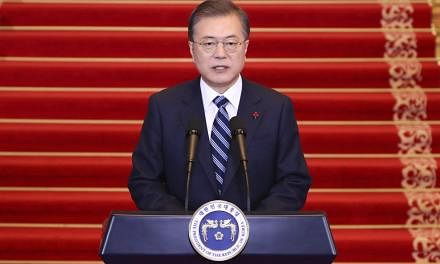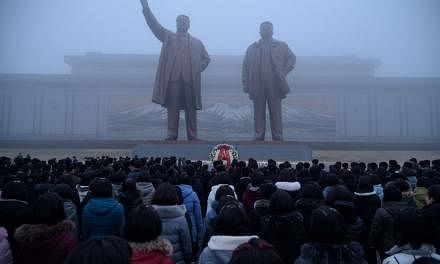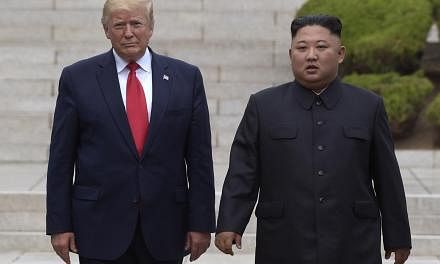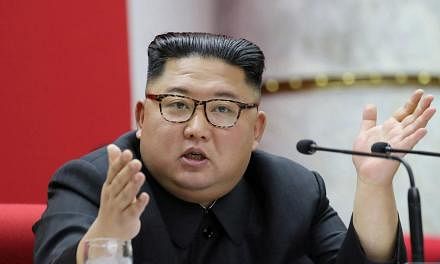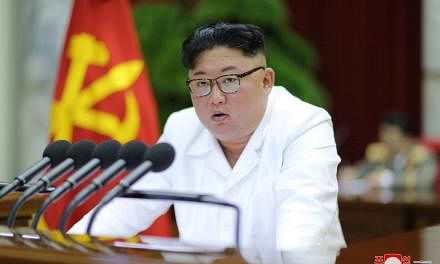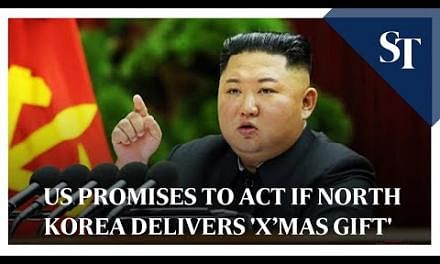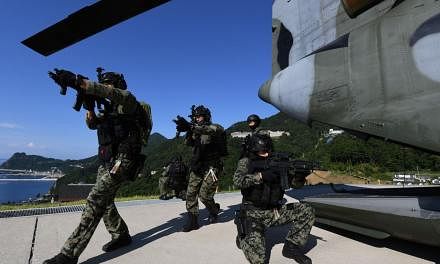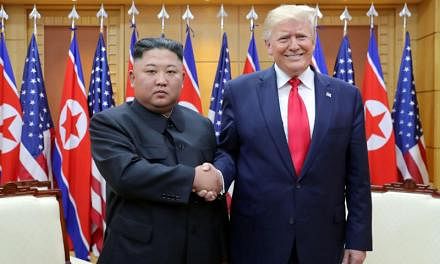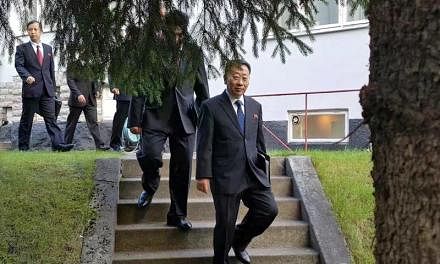The 45th President of the United States loves to tweet.
The 71-year-old frequently uses Twitter to announce policy decisions, assail his adversaries and also to trade barbs with a man less than half his age - North Korean leader Kim Jong Un, 34.
He has called Mr Kim a Rocket Man and warned him that America's "Nuclear Button" is "bigger, more powerful", among other threats.
But Mr Trump has found a match in the North Korean leader, who is said to be feisty and confident.
Memorably, Mr Kim called Mr Trump a "dotard", sparking a spike in online searches for the word, which means an old person who has become weak or senile. He also timed his country's first intercontinental ballistic missile (ICBM) test on July 4, 2017, to send a gift to "American b**tards" on their independence day.
Given the expressed hostilities, Mr Trump shocked the world when he accepted in early March what was thought to be an invitation from Mr Kim to meet to discuss denuclearisation. But North Korea has since denied that it had invited the US for talks.
Mr Trump, a former real estate mogul who loves making deals, has stressed that he is prepared to walk from a bad deal any time.
He has said he wants North Korea to to be denuclearised in an "all in one" manner.
On May 17, he promised that Mr Kim would remain in power and North Korea would be very rich if the communist state were to strike a deal with the US.
Yet, in the same breath, he issued a veiled warning, saying the Libya model "will take place if we don't make a deal, most likely".
In that "model", Libyan leader Muammar Gaddafi agreed in 2003 to terminate his nuclear programme, shipping out materials to the US. But later, an uprising against his rule drew Western support and saw him being overthrown and in 2011, savagely lynched by a mob of rebels.
In his letter on May 24 to Mr Kim to cancel their planned summit, Mr Trump again wielded the stick of US' superior military might.
"You talk about your nuclear capabilities, but ours are so massive and powerful that I pray to God they will never have to be used," he wrote.
But the mercurial leader has since reversed course.
On June 1 (June 2, Singapore time), Mr Trump said his June 12 summit with Mr Kim is back on. "We are going to deal, and we are really going to start a process," said Mr Trump after receiving Mr Kim's right-hand man and former spy chief Kim Yong Chol at the White House.
Mr Trump added that the summit may not immediately yield an agreement. "Remember what I say: We will see what we will see."
He has said that it may take more than one meeting to seal a denuclearisation deal with North Korea.
In an interview with the late Tim Russert on "Meet the Press" in 1999, Mr Trump said if he were president he would "negotiate like crazy" with North Korea.
The world is holding its breath.
With input from US Bureau Chief Nirmal Ghosh


